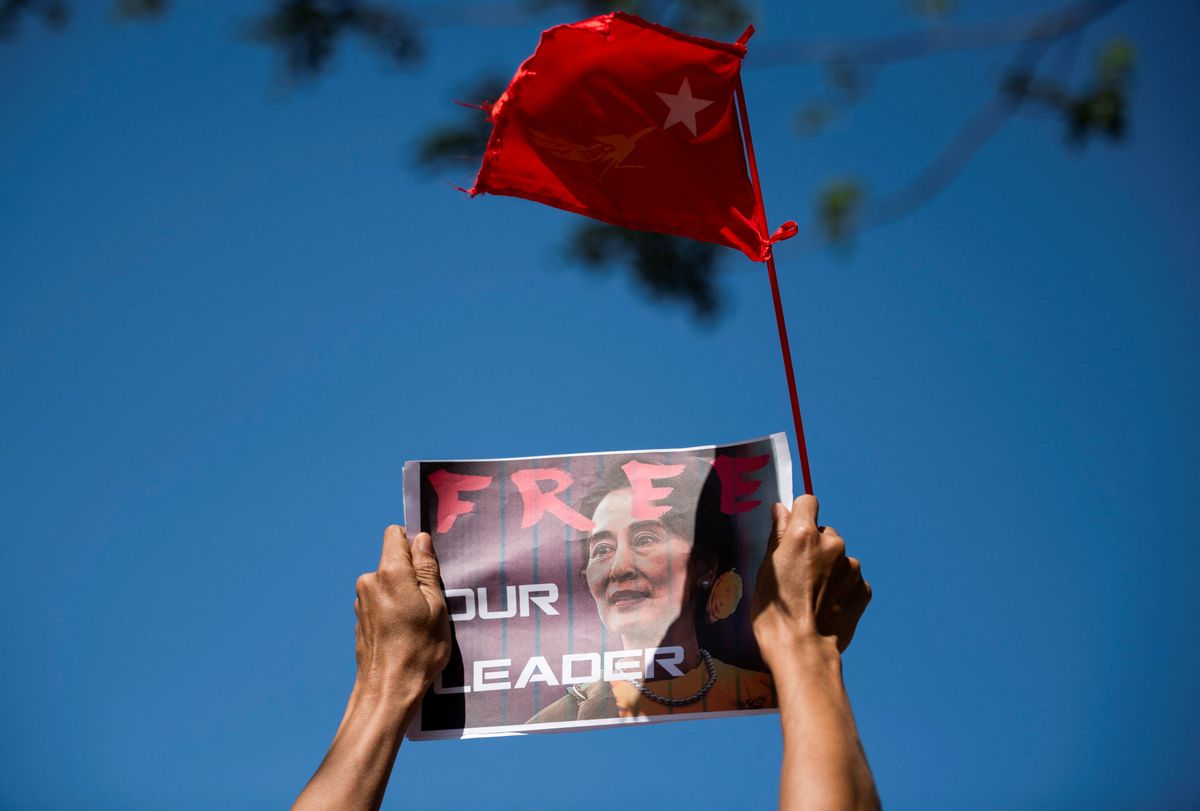Nobel Prize winner Aung San Suu Kyi gets partial pardon from Myanmar junta
Five of the more minor charges against Suu Kyi have been pardoned, which means her sentence has been cut by six years – but she’s still facing 27 years total.

A few minutes every morning is all you need.
Stay up to date on the world's Headlines and Human Stories. It's fun, it's factual, it's fluff-free.
The backstory: Aung San Suu Kyi, 78, is the former democratic leader of Myanmar. The military seized power in Myanmar in 1962, but years of military rule led to civil protests and a public uprising. Then, Suu Kyi won a historic first democratic election there in 1990. But the military invalidated those results and held her under house arrest for 15 years. While under house arrest, she won the Nobel Peace Prize for her nonviolent fight for democracy and human rights.
Starting in 2010, the military moved away from trying to rule the country. Suu Kyi won again in a 2015 election, becoming the State Counsellor (the equivalent of a prime minister) of Myanmar as the leader of the winning National League for Democracy Party. She pulled off that win again in 2020, with NLD getting 83% of the national vote. She’s considered a figurehead for the country’s struggle against dictatorship.
More recently: In February 2021, Myanmar’s military staged a coup and re-established its power. Suu Kyi, other high members of the NLD and then-president U Win Myint were forced to step down, and they were all arrested for alleged voter fraud. That December, Suu Kyi was put through a special court trial, where she was charged with breaking COVID restrictions, incitement, illegal walkie-talkie possession and other offenses. Even though the UN called for her and other political prisoners’ release, she was still detained.
In December 2022, Suu Kyi was sentenced to 33 years in prison for corruption, electoral fraud, bribery and other offenses. Her lawyers said these charges and convictions were politically motivated, but the Myanmar Supreme Court heard and denied all of her appeals.
The development: Last week, Myanmar’s junta government announced that Suu Kyi would be moved to house arrest instead of prison as a part of a wider act of clemency. This Tuesday, state media reported that the head of Myanmar’s military council, Senior Gen. Min Aung Hlaing, was granting mass clemency to over 7,000 of the country’s prisoners, including Win Myint and Suu Kyi.
Five of the more minor charges against Suu Kyi have been pardoned, which means her sentence has been cut by six years – but she’s still facing 27 years total. This clemency campaign is connected to a Buddhist religious holiday being observed there. The military had promised another election this August, but it announced on Monday that it would be postponed another six months.
Key comments:
"This is just a political trick ... aimed at relieving pressure," said the spokesman for a shadow National Unity Government made up of Suu Kyi’s supporters and others opposed to the military rule, Kyaw Zaw. "They must be released unconditionally since they were arbitrarily detained. All political prisoners must be released."
“The regime is willing to use her for symbolic purposes, but I don’t see many other signs of anything bigger going on,” said Richard Horsey, a senior adviser on Myanmar for the International Crisis Group.
"While holding an election, in order to have an election that is free and fair and also to be able to vote without any fear, necessary security arrangements are still needed and so the period for the state of emergency is required to extend," read Myanmar’s junta statement on state TV, announcing a postponement of August elections on Monday.




Comments ()